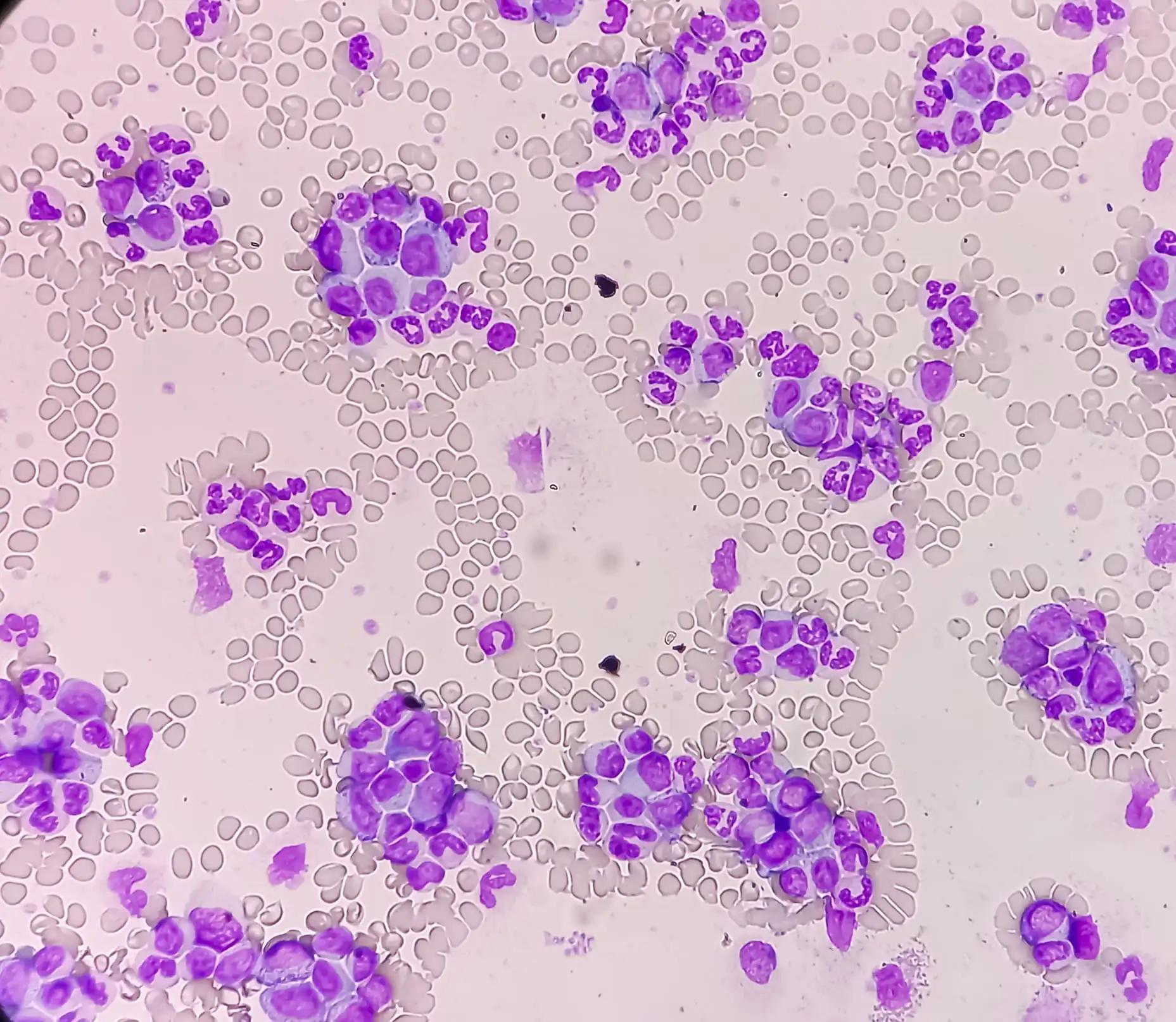KEY TAKEAWAYS
- The COHABILIT trial aimed to assess adherence and feasibility of personalized prehabilitation with connected objects from diagnosis to allo-HSCT.
- Personalized prehabilitation, facilitated by technology, enhances physical, psychosocial, and clinical outcomes in leukemia patients.
Patients with acute myeloid leukemia (AML) and high-risk myelodysplastic syndromes (MDS) often undergo intensive chemotherapy followed by allogeneic hematopoietic stem cell transplantation (allo-HSCT). This pretransplant regimen typically leads to a decline in health and quality of life. Moreover, allo-HSCT carries risks of significant toxicity, including graft-versus-host disease (GvHD).
Developing strategies to prevent physical decline, malnutrition, and psychological distress could preserve overall health before transplantation, mitigating these adverse effects.
Colombe Saillard and the team aimed to assess the feasibility and adherence of a personalized prehabilitation program, supported by connected objects, from diagnosis to allo-HSCT.
This multicenter interventional study will enroll 50 patients undergoing intensive chemotherapy for AML or high-risk MDS and eligible for allo-HSCT. The intervention involves coached, supervised, or self-directed physical activity, both in hospital and at home, along with weekly dietary follow-up. A dedicated application and connected objects will control and personalize the intervention. Feasibility will be assessed by evaluating the rate of participation in prescribed physical activity sessions.
Furthermore, the progression of physical capacities (Short Physical Performance Battery, grip and quadriceps strengths), psychosocial parameters (Functional Assessment of Cancer Therapy – Leukaemia, Functional Assessment of Cancer Therapy – Fatigue, subjective well-being, Hospital Anxiety and Depression Scale, self-efficacy, Coach-Athlete Relationship Questionnaire, interviews), and clinical status (weight, lean body mass, survival rate, number of infections, days of hospitalization, GvHD) will undergo assessment.
This multicenter interventional study underscores the feasibility and potential benefits of personalized prehabilitation programs, utilizing connected objects and a dedicated application, to improve physical, psychosocial, and clinical outcomes in AML and high-risk MDS patients undergoing intensive chemotherapy and allo-HSCT. The study is ongoing.
The trial was sponsored by the Institut Paoli-Calmettes.
Source: https://pubmed.ncbi.nlm.nih.gov/38553062/
Clinical Trial: https://clinicaltrials.gov/study/NCT03595787
Saillard C, Cuvelier S, Villaron-Goetgheluck C, et al. (2024) “Tripartite prehabilitation of patients with acute myeloid leukaemia and high-risk myelodysplastic syndromes during intensive chemotherapy before allogeneic haematopoietic stem cell transplantation (COHABILIT): protocol for an innovating prospective multicentre study.” BMJ Open. 2024 Mar 29;14(3):e076321. doi: 10.1136/bmjopen-2023-076321. PMID: 38553062; PMCID: PMC10982723.



